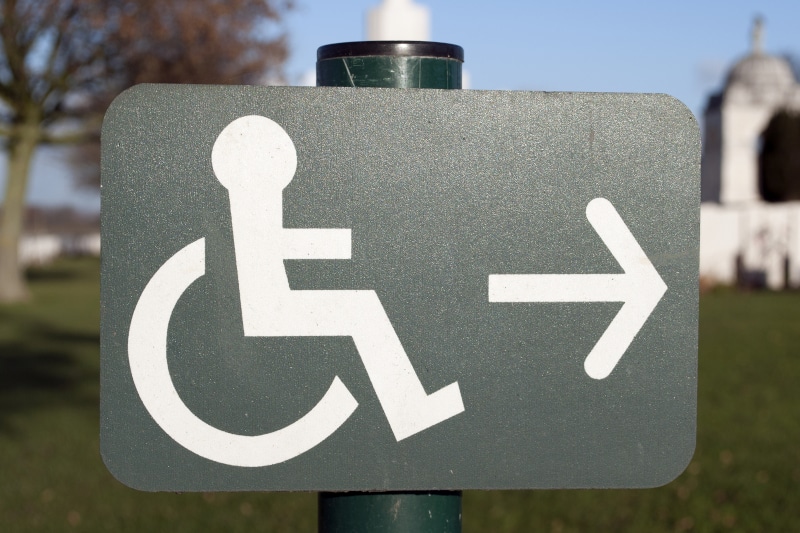
Will I lose my disability if I get a medical marijuana card?
Medical marijuana use seems to be a gray area when applying for Social Security Disability Insurance (SSDI) or having your existing disability case reviewed. The good news is that having a medical marijuana card does not automatically disqualify you from SSDI. Having a medical card can be a sticking point. Fortunately, there are some things you can do to reduce the risk of losing or being denied disability insurance as a medical marijuana patient.
Can you be denied or potentially lose Social Security benefits if you get a medical marijuana card? Considering what’s at stake this is a very valid concern.
The truth of the matter is that there is nothing in the Social Security regulations that would prevent a medical marijuana patient from being approved for Social Security benefits.
On the other hand, there’s also nothing in the rules that prevents your application from being denied or revoked because you’re a medical marijuana patient.
Fortunately, state laws have a big influence on how SSDI cases are judged.
Be aware, however, that even if you’re in a state where adult use of marijuana is legal, admitting to even light recreational use can disqualify you for benefits.
There are no drug testing requirements in order to be approved for disability benefits. However, lying about medical or recreational marijuana use on your application just to avoid being denied is a felony offense. Don’t do it.
Although, if you’ve played by the rules, having a medical marijuana card isn’t necessarily a problem. Medical marijuana use is just one of the factors that will be considered.
Here is an interesting fact. In states with medical marijuana programs, disability cases actually rise rather than fall. That is according to the National Bureau of Economic Research.
In September of 2017, researchers from Temple University, University of Cincinnati, and Johns Hopkins studied what happens after a state passes a medical marijuana law.
What they found is that Social Security disability claims actually rose almost 10 percent after medical marijuana programs were launched. And claims among 23 to 40 year-olds rose by a whopping 24 percent.
That being said, the number of approved cases only rose 2.5 percent. So it does appear that a large portion of card-holding medical marijuana patients are, indeed, being denied disability benefits.
One of the reasons this might be the case is drug bias. Some people still view medical marijuana as drug abuse even if it is legal in the state and even if it is being used for medicinal purposes.
However, there are some things you can do to greatly decrease your chances of your application being denied as a result of medical marijuana use. This is assuming that you qualify for disability in the first place.
How medical marijuana users can improve the chances of being approved for SSDI
The Social Security Administration does not actually have a policy in place concerning the use of medical marijuana. This is likely due to the fact that it is legal in some states and illegal in others.
Even in states that permit the use of medical marijuana you might want to think twice about taking part in the program if you rely solely on disability payments for your income. Don’t rule out getting a medical marijuana card altogether, but do take a good hard look at your case before you make the call.
The judge will be taking your medical condition into consideration. If he or she feels that medical marijuana is not absolutely necessary or that stopping its use will not be harmful to your health, they are more likely to see it as a strike against you.
For this reason, you’ll want to make sure that your case is well documented and that your medical marijuana doctor is willing to back you up on the matter.
If your case is poorly documented and the judge doesn’t see that you’ve tried other forms of treatment your case will be thin.
If marijuana use is the actual cause of your disability, that’s going to cost some big points. In other words if you are claiming that medical marijuana use makes it impossible for you to work due to impairment, you’re killing your chances of winning your case.
Furthermore, having a record of drug addiction or alcoholism is going to further weaken your case. Abuse of illicit drugs or alcohol is a huge red flag when being considered for SSDI benefits. The government doesn’t want you rushing out each month and spending your check on drugs or booze.
Being able to make a credible claim that your health will suffer if you stop using medical marijuana will give points in your favor.
Don’t go it alone, hire a disability lawyer
As we mentioned earlier, some Social Security judges have a bias. As unfair as it might seem, they might see any marijuana use as a reason to deny your claim. If this happens, you’ve got very little recourse.
However, there are lawyers that are experts in disability claims. A judge is going to give a lawyer a lot more credibility than you’ll get on your own.
If you’ve got legal representation at your side, someone who has been in this situation and knows your rights in this area, you’re much more likely to sway the judge’s decision.
It usually doesn’t cost anything to talk to a disability lawyer to get an opinion as to whether or not they can help you. A quick Google search will likely produce a long list of disability lawyers in your area.
Being denied SSDI and the right to appeal
If for some reason your Social Security application is denied or revoked, you’ll have the opportunity to appeal the decision.
Although, it’s going to be even harder to convince a judge the second time around. You’ve got to have a rock-solid case. And if you had a rock-solid case you probably would not have been denied disability insurance in the first place.
So, you really need to think the entire case through before you submit your application or before your case comes up for review.
The bottom line is that if you can show all of the following conditions you’ll have a strong case:
- Your doctor is willing to attest that medical marijuana is the most effective option for your medical condition and medical history.
- That refraining from the use of medical marijuana could be hazardous to your health and wellbeing.
- You do not have a history of drug addiction or alcoholism.
- You do not have a criminal record related to drug charges.
- You have an experienced disability lawyer who has dealt with the medical marijuana issue.
If you’ve got questions regarding medical or recreational marijuana laws and rules we would be happy to answer them for you. Click here to submit your question.













